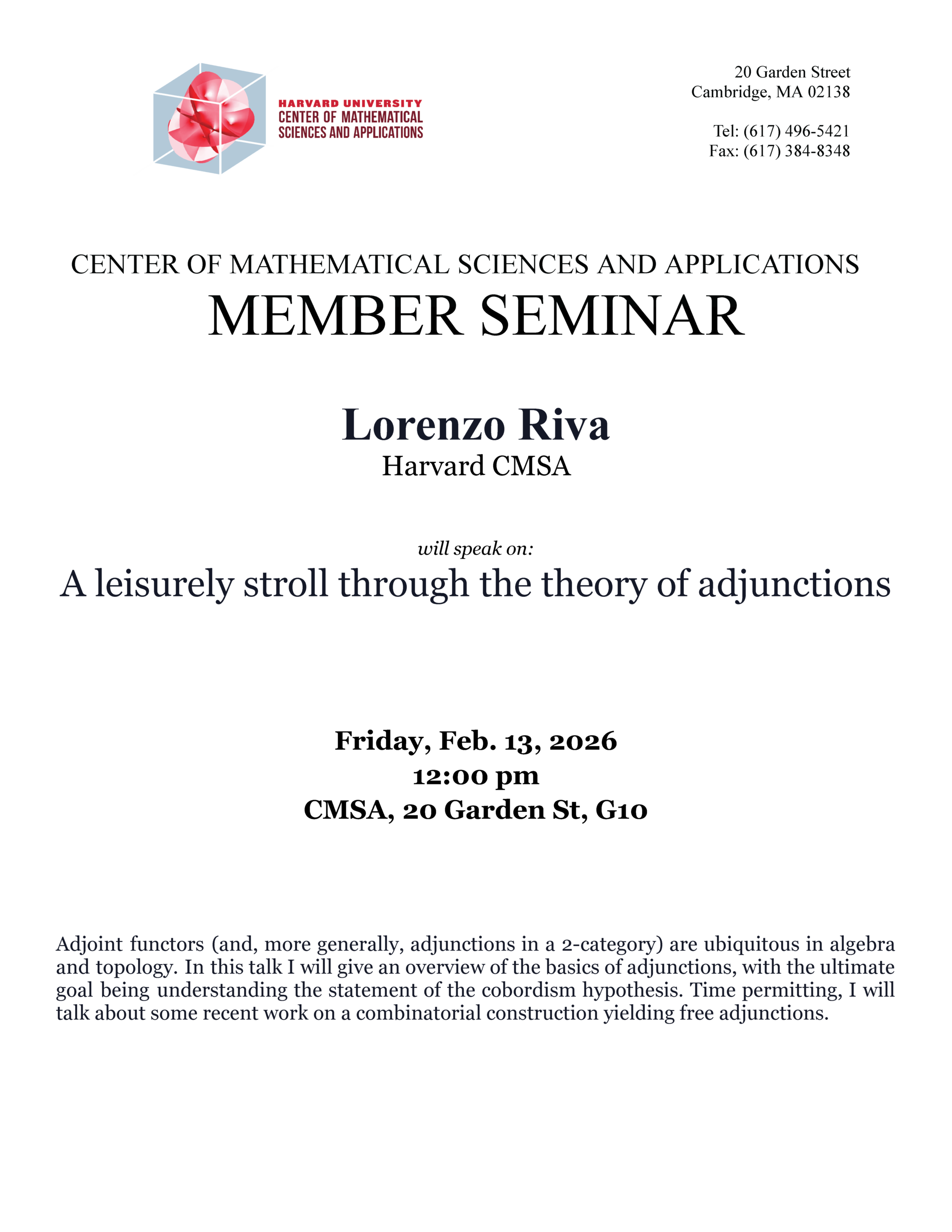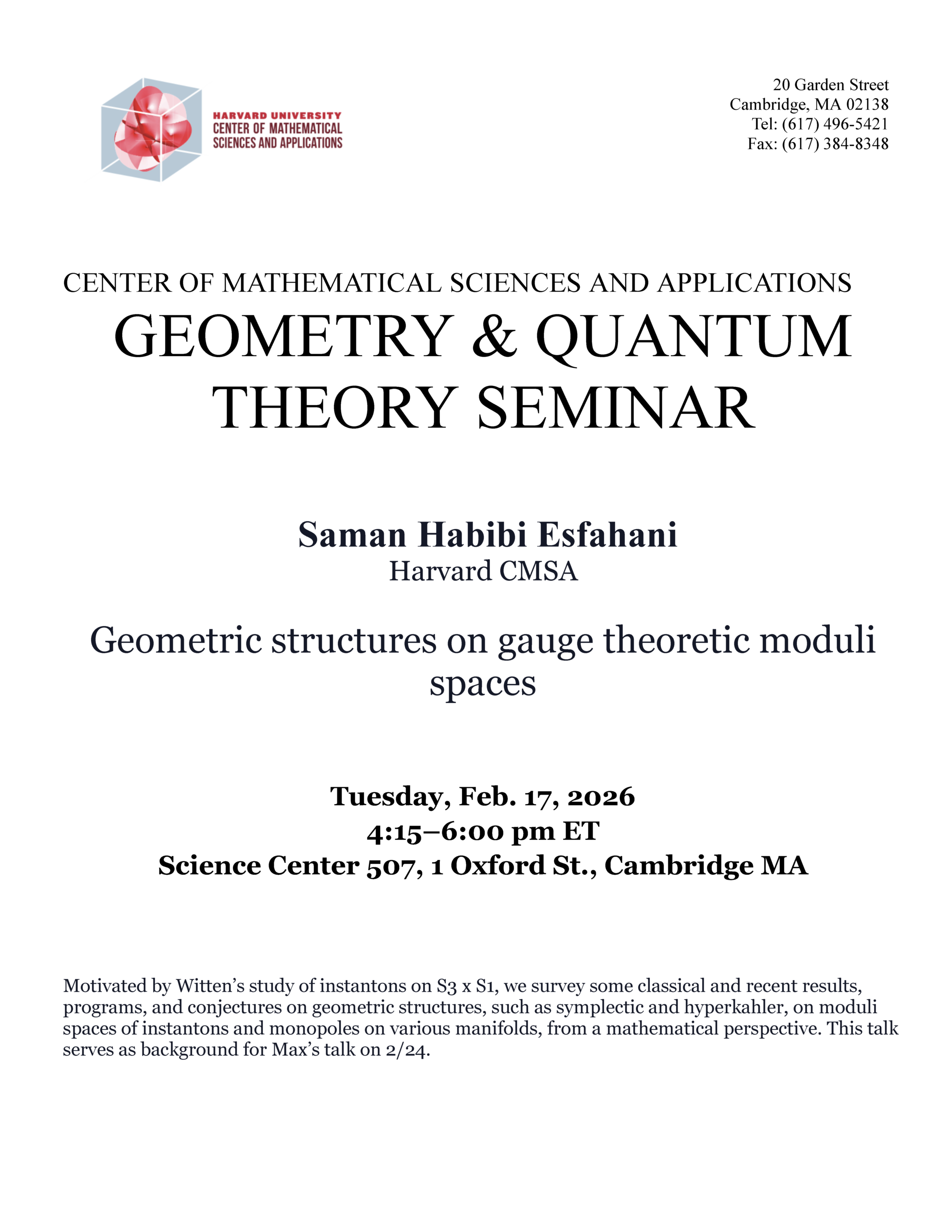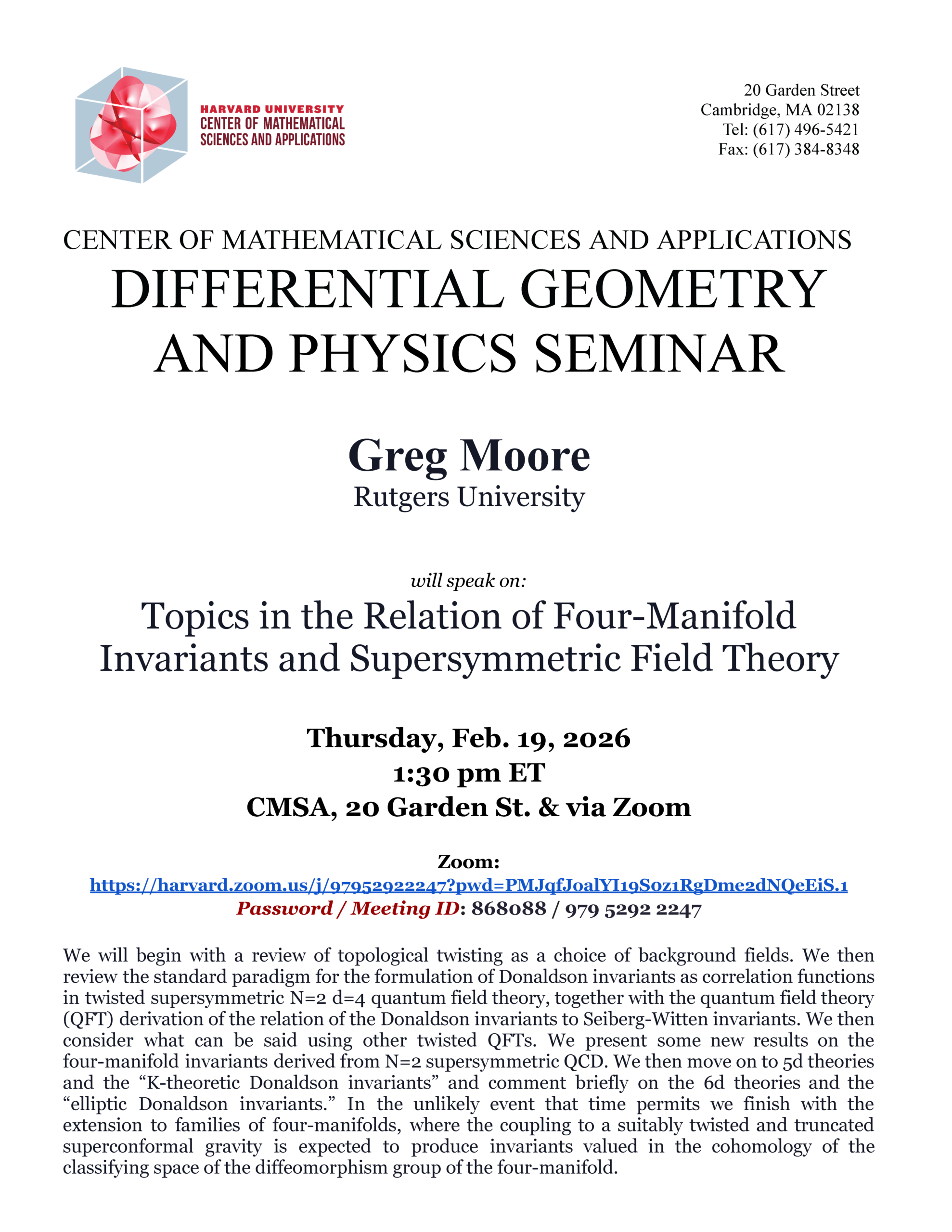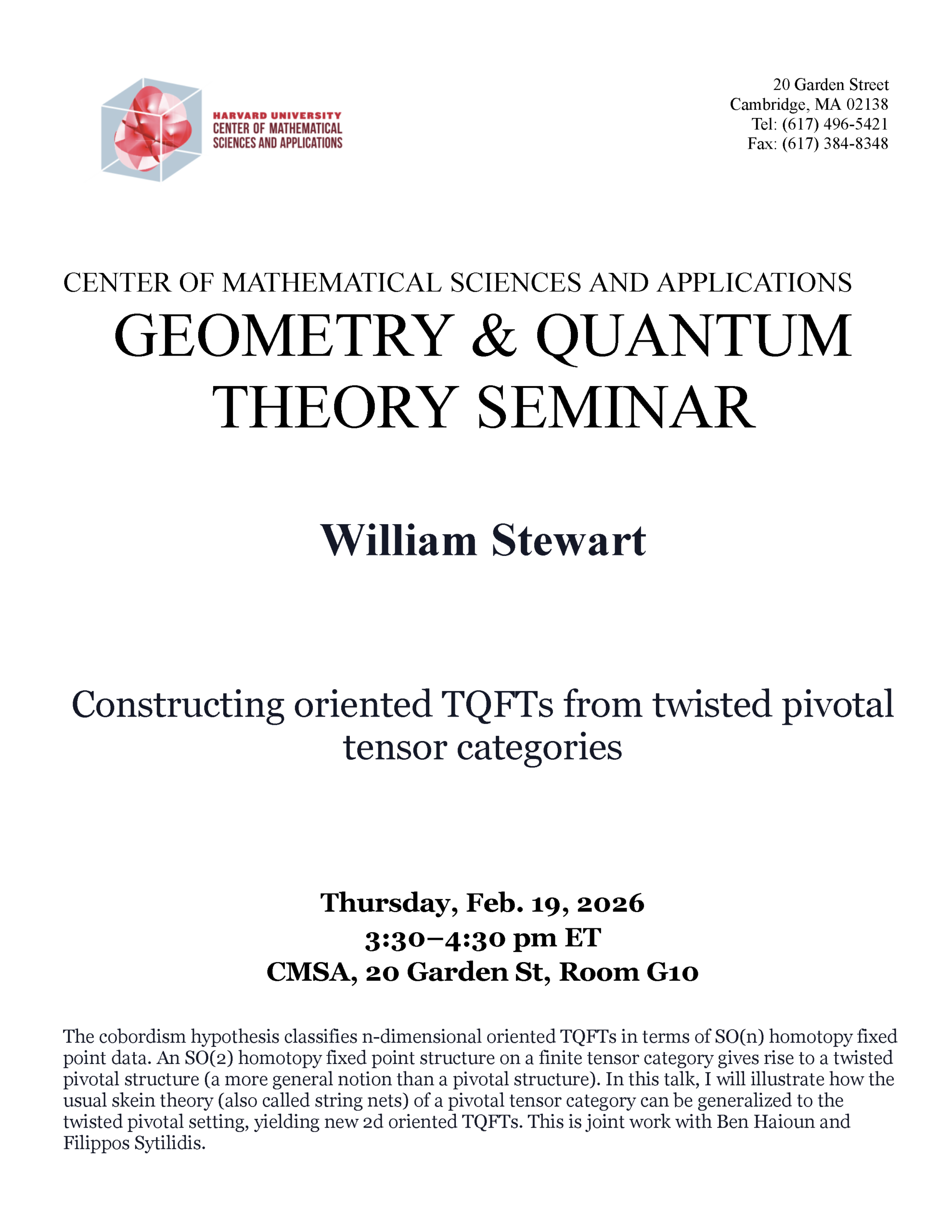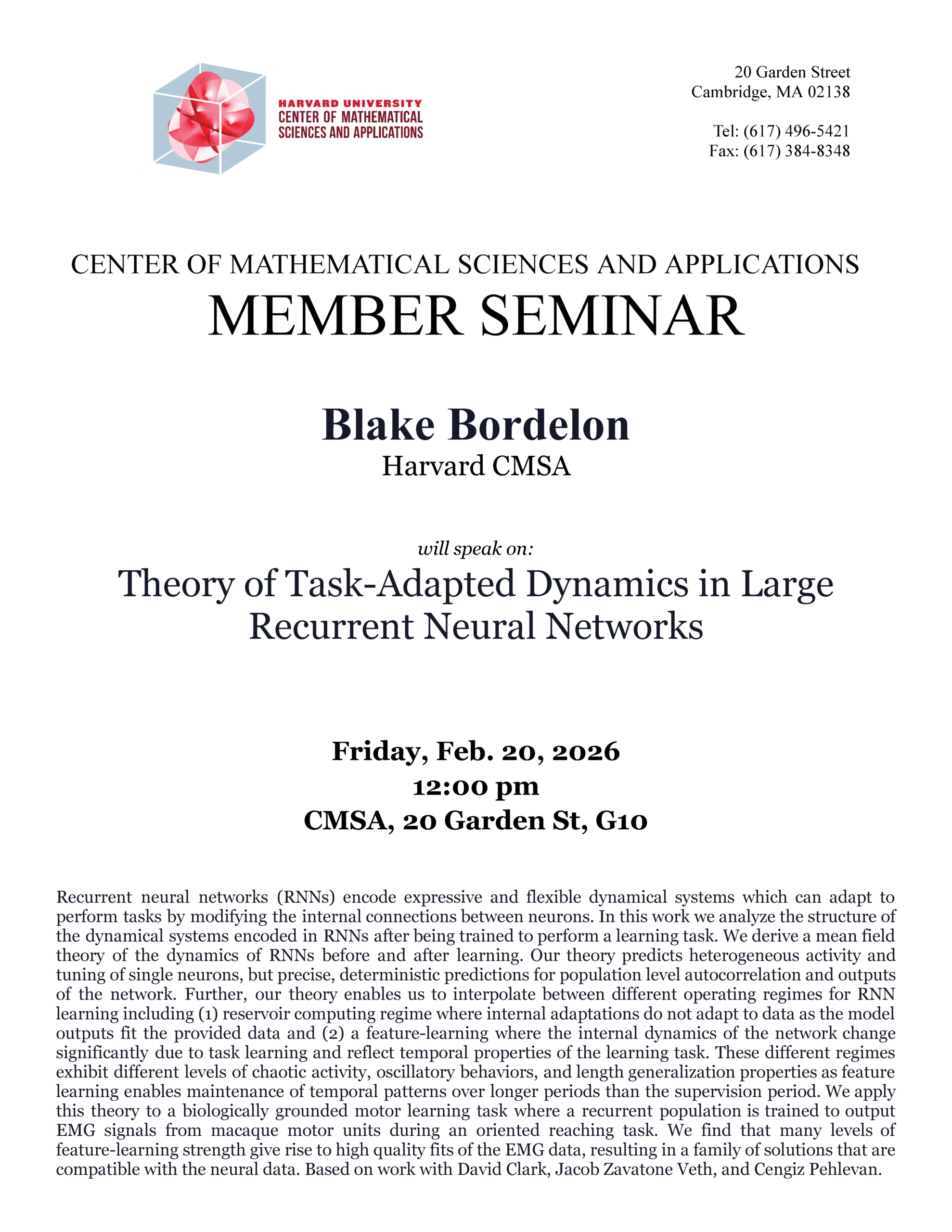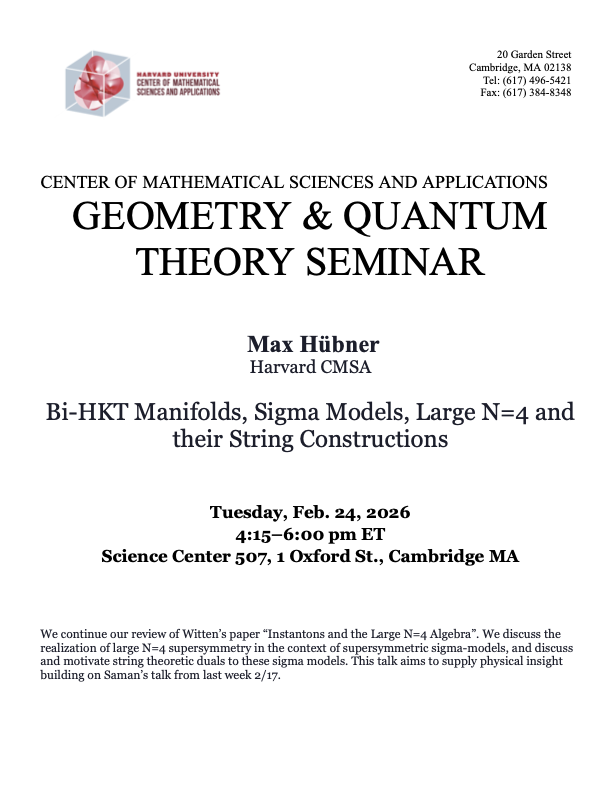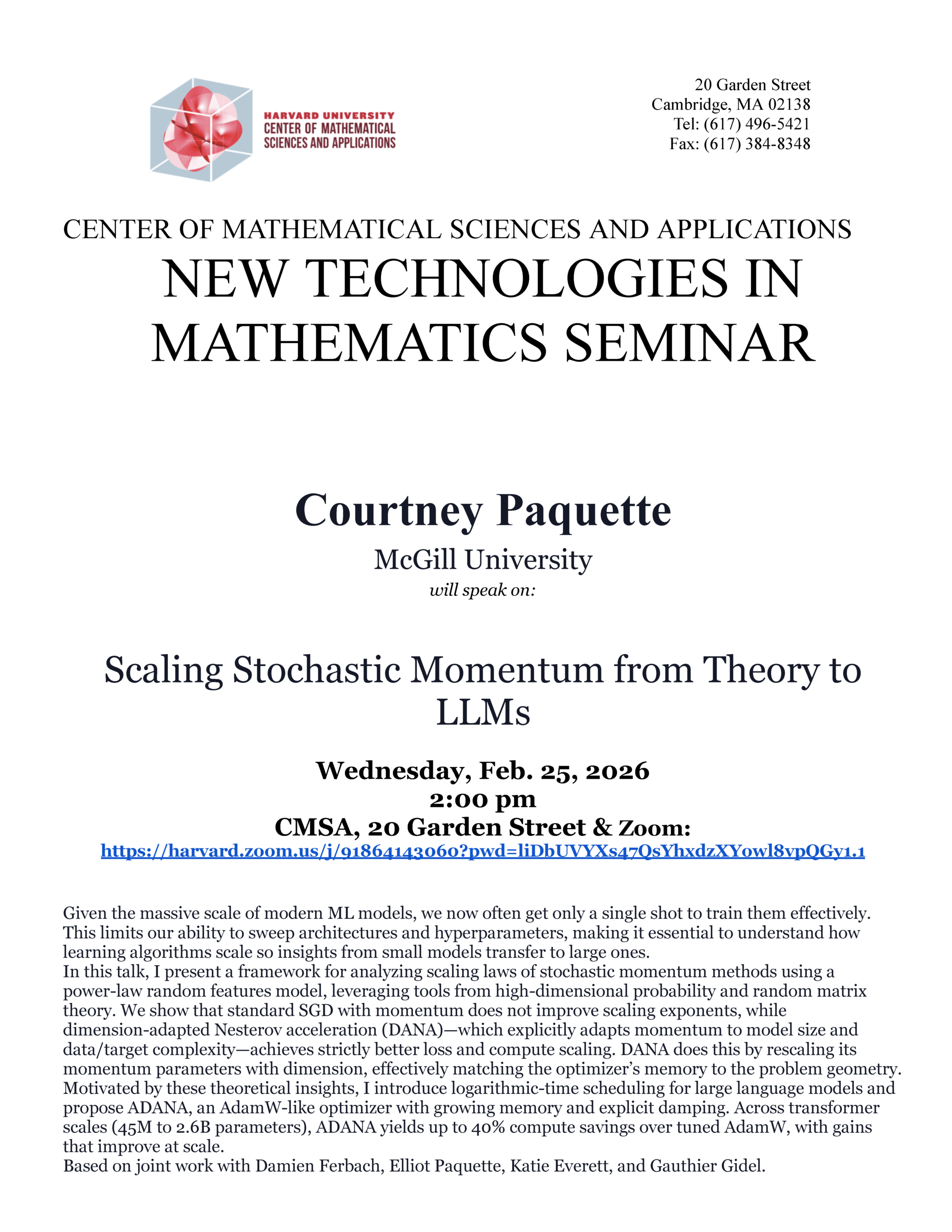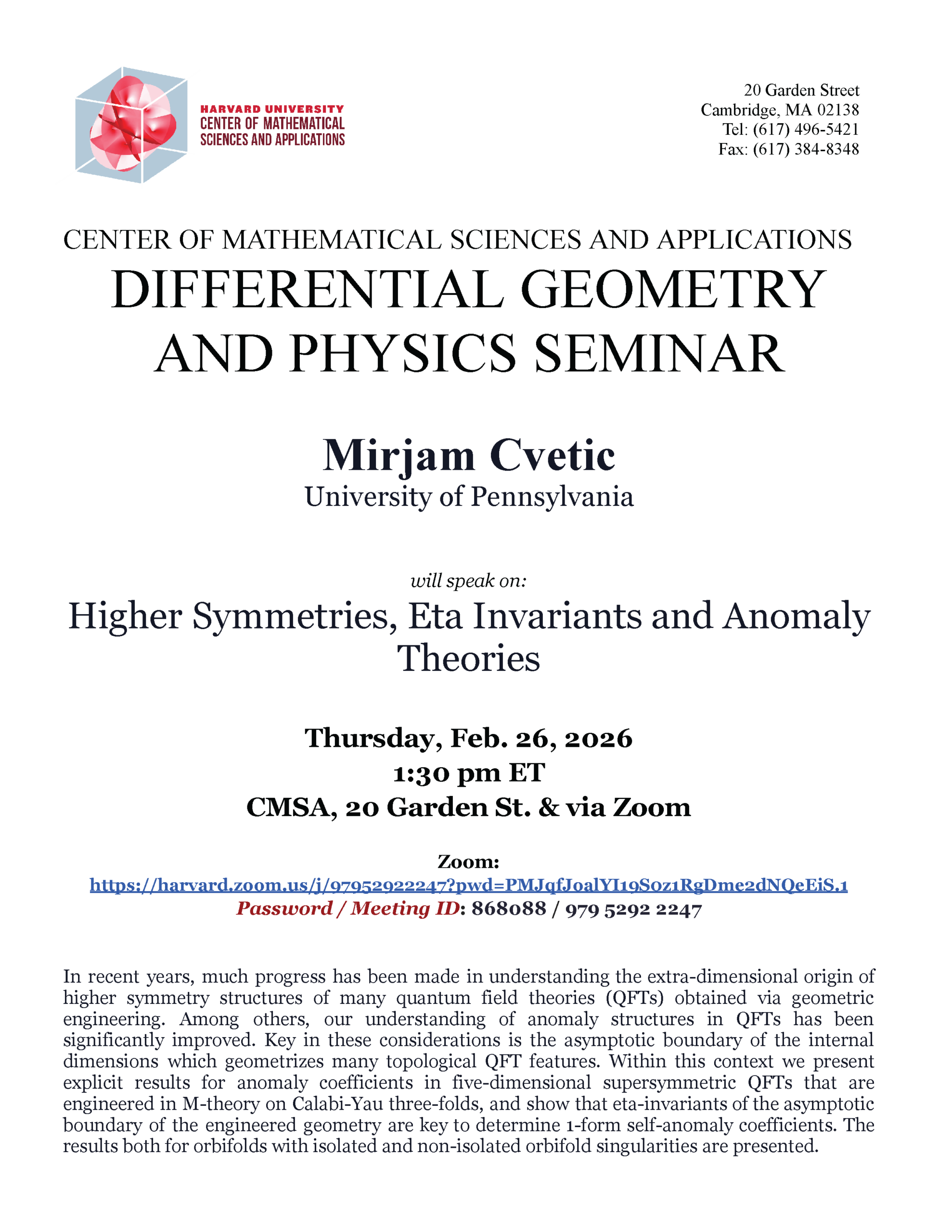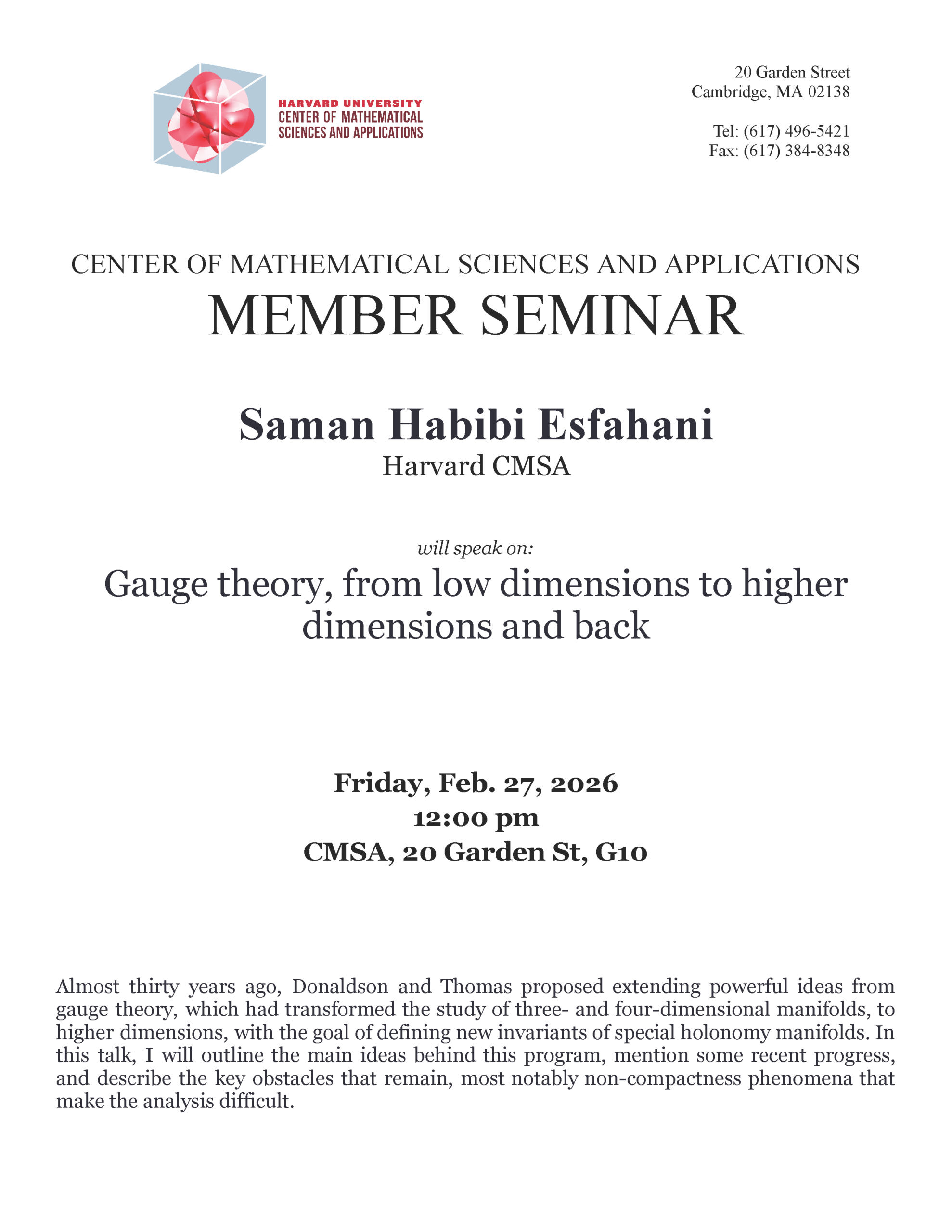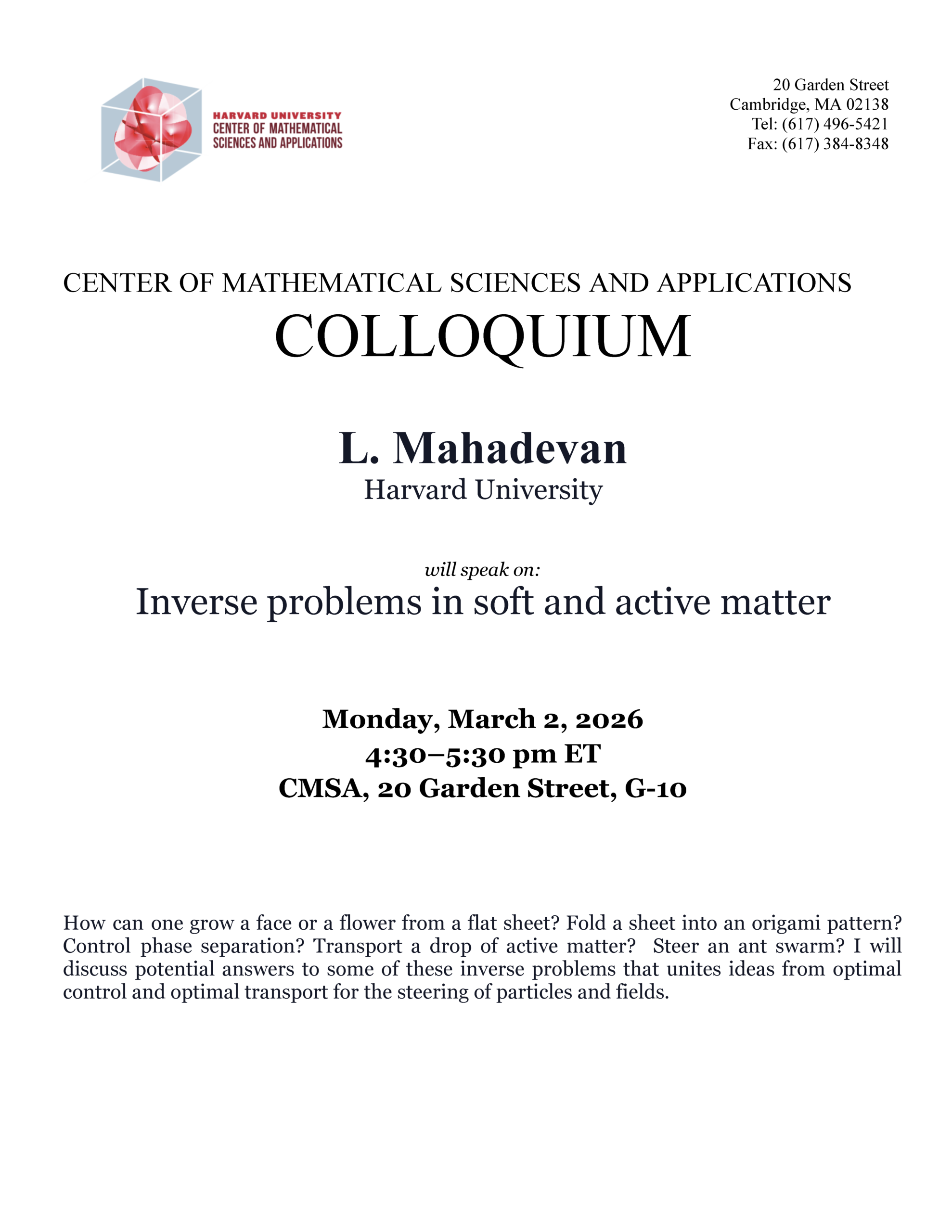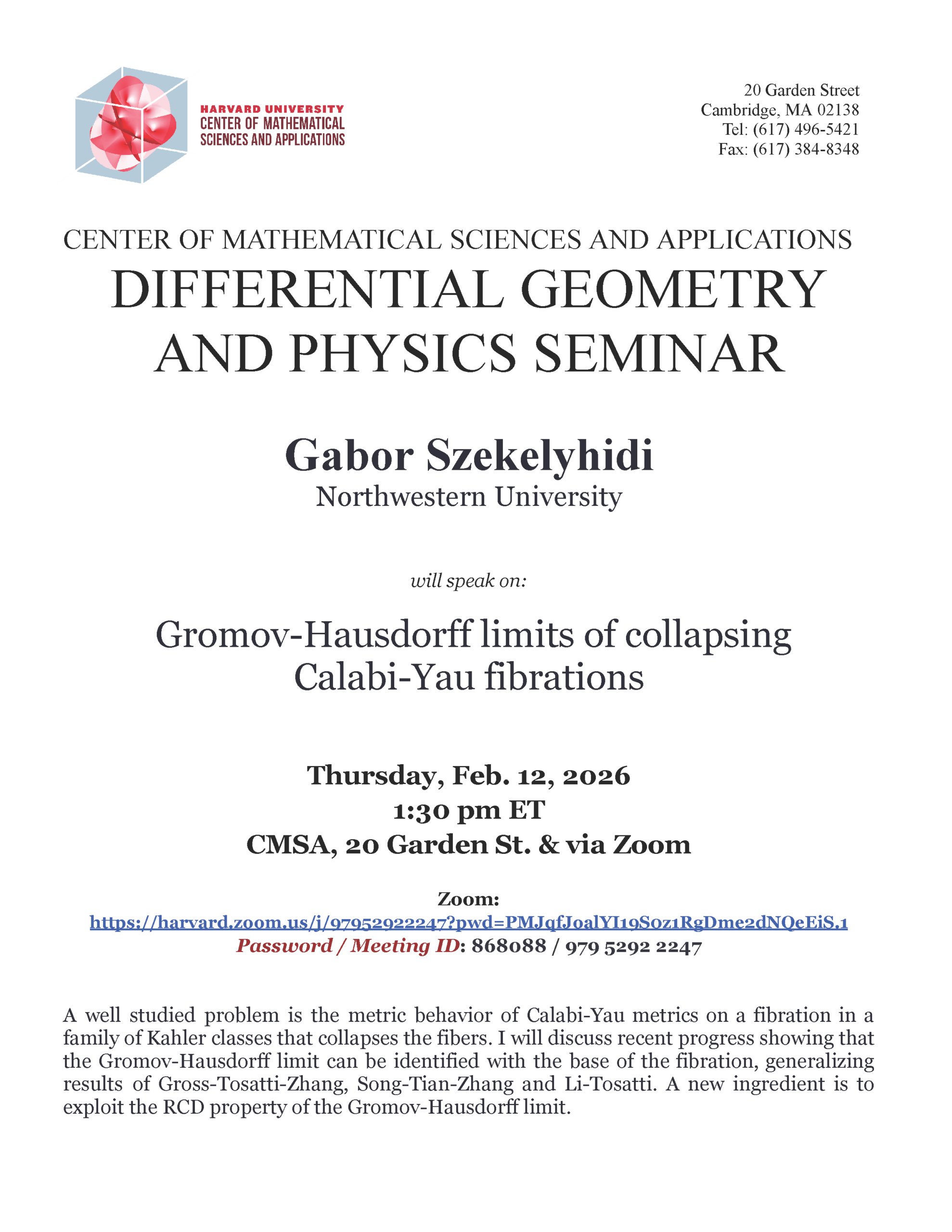
Gromov-Hausdorff limits of collapsing Calabi-Yau fibrations
Differential Geometry and Physics Seminar Speaker: Gabor Szekelyhidi, Northwestern University Title: Gromov-Hausdorff limits of collapsing Calabi-Yau fibrations Abstract: A well studied problem is the metric behavior of Calabi-Yau metrics on a fibration in a family of Kahler classes that collapses the fibers. I will discuss recent progress showing that the Gromov-Hausdorff limit can be identified […]

